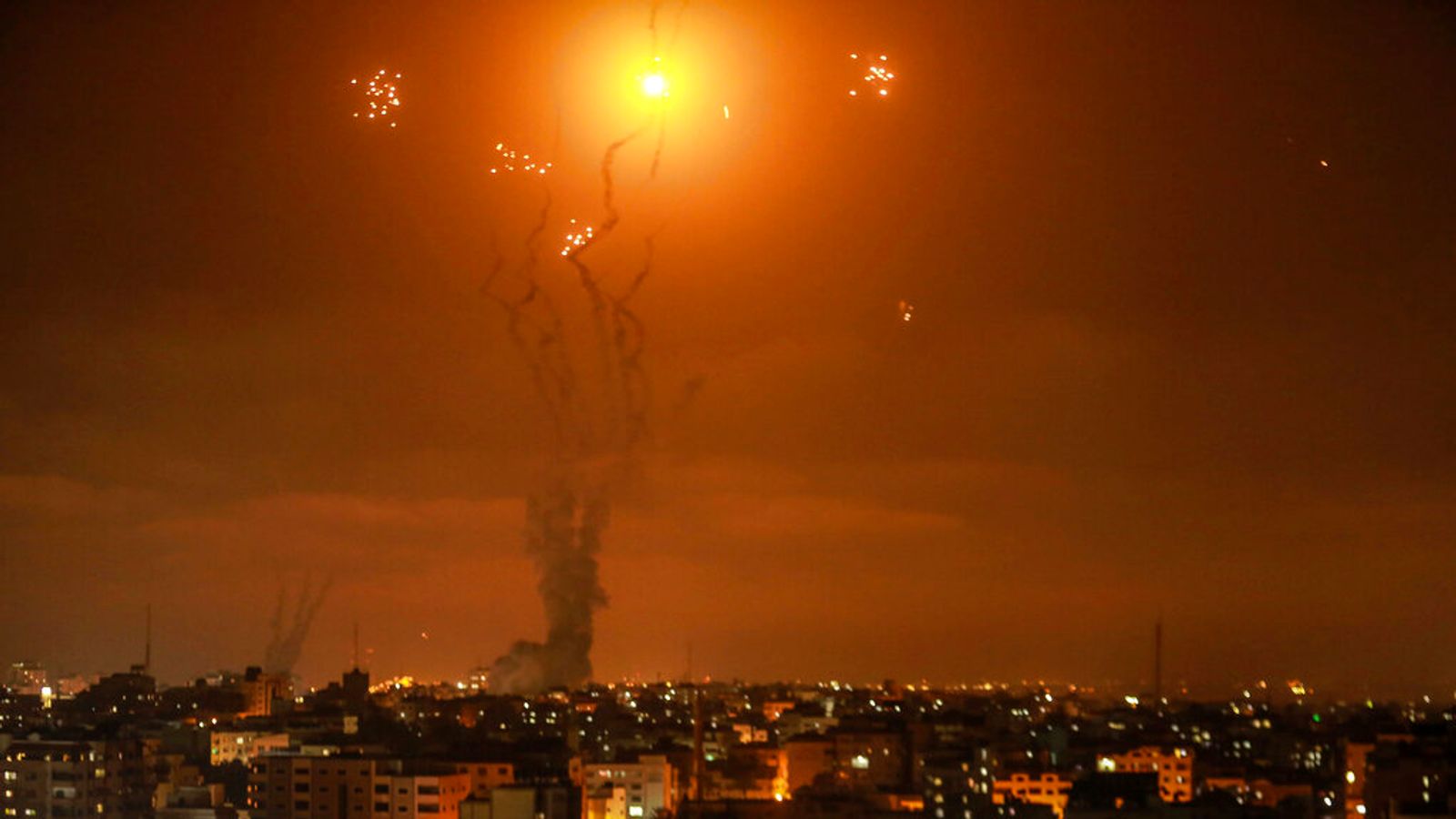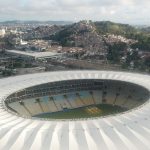The scenes of violence in the Gaza Strip and across Israel are tragic but should come as no surprise.
The spark that ignited the worst Israeli-Palestinian hostilities in seven years was clashes on Monday at Jerusalem’s most contested religious site – the al Aqsa mosque compound.
But tensions in this decades-long trauma had been mounting for months thanks to a volatile conflation of events, politics and personalities.
Please use Chrome browser for a more accessible video player
The immediate catalyst was mounting fury among Palestinians over Israeli efforts to move Palestinian families from parts of East Jerusalem.
It triggered Palestinian claims of ethnic cleansing, while right-wing Jews argued that they were seeking rightful ownership of property on land that they owned.
The planned eviction of six families from a neighbourhood called Sheikh Jarrah became a flashpoint in recent weeks, with nightly skirmishes between Palestinian protesters and the Israeli police in East Jerusalem.
Layered into this – during the holy Muslim month of Ramadan, which began in mid-April – there was the outpouring of a wider unhappiness among Palestinians in the occupied territories and those living in Israel at the status quo following years of failed diplomacy to create a two-state solution to this intractable crisis.
Such unrest and disagreement would be hard enough for any two opposing sides to manage.
But Israel is in the grip of a political crisis, with four elections over two years failing to produce an outright leader, leaving the incumbent Benjamin Netanyahu staying on as acting prime minister while at the same time facing corruption charges, which he denies.
A conflict with the Palestinians, his critics say, could help to bolster his position at home and at the very least distract attention from his fragile grip on power.
At the same time, Palestinian President Mahmoud Abbas last week postponed planned Palestinian elections, blaming uncertainty about whether Israel would allow them to proceed in East Jerusalem.
However, many Palestinians see this as an excuse for a leader who is fearful that his Fatah party might lose to its Islamist rivals Hamas – which already controls the Gaza Strip.
And then there is the international dimension.
Israel’s fortunes prospered and the Palestinian cause struggled during four years of an unabashedly pro-Israeli US president in the White House.
Donald Trump upturned decades of US policy when he chose to recognise Jerusalem as the capital of Israel and move the US embassy there from Tel Aviv, where most other countries, including the UK, have their missions.
Israel regards the whole of Jerusalem as its capital, but the Palestinians see East Jerusalem as the capital of a future Palestinian state.
US actions doubtless bolstered Mr Netanyahu’s push to expand Jewish settlements into Palestinian neighbourhoods despite the moves being deemed by the United Nations as a violation of international law.
The Trump administration did have some significant breakthrough – though far short of a much-vaunted peace deal.
Please use Chrome browser for a more accessible video player
The then-president oversaw the normalising of relations between Israel and four Arab states – the United Arab Emirates (UAE), Bahrain, Sudan and Morocco.
But this is a normalising of ties that could unravel if the current crisis deepens.






















